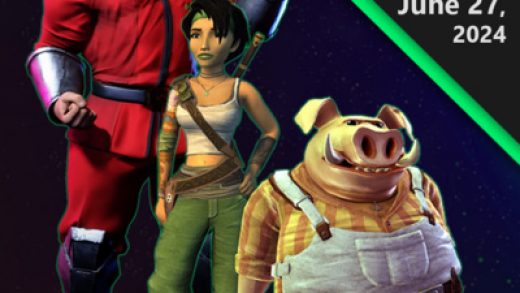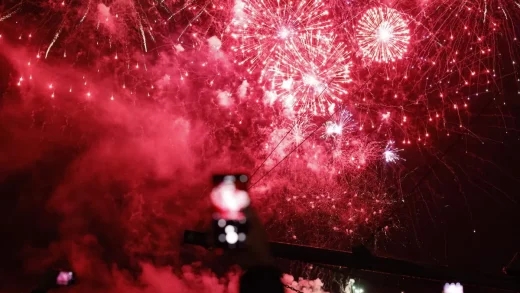:format(webp)/https://www.thestar.com/content/dam/thestar/entertainment/stage/review/2023/02/16/redbone-coonhound-a-couples-heated-disagreement-about-a-racist-dog-name-gets-turned-into-a-funny-play/chala_hunter_and_christopher_allen.jpg)
Redbone Coonhound
Written by Amy Lee Lavoie and Omari Newton, directed by Micheline Chevrier with Kwaku Oyere. Until March 5 at Tarragon Theatre Mainspace, 30 Bridgman Ave. tarragontheatre.com or 416-531-1827
If this play’s title makes you a bit uncomfortable, you’re not alone.
The topical satire grew out of Amy Lee Lavoie and Omari Newton’s experience of meeting a dog of that breed while out on a walk.
An interracial married couple — she’s white, he’s Black — they had different reactions to the breed name, with him reacting in shock to the double-barrelled slur within it (redbone is Black slang for mixed race, while coon is a strongly derogatory term meaning race traitor). She had heard of the breed before and didn’t find the name problematic. Both playwrights, they decided to turn the heated discussion that sprung up between them about race, language, history and privilege into a script.
If that doesn’t sound funny, think again.
The 100-minute production weaves together scenes set in present-day Vancouver featuring an interracial couple modelled on Lavoie and Newton, with fanciful historical and futuristic vignettes riffing on the issues about race that come up on the couple’s debates.
The start is wobbly: the first naturalistic scene between Mike (Christopher Allen) and Marissa (Chala Hunter) felt hesitant on opening night, and the terms of engagement around the vignettes took a while to land.
Lavoie and Newton are laying down strong stuff; the first vignette is set south of the Ontario border in the 1840s, where an escaping slave played by Allen and a pair of Quaker do-gooders (Brian Dooley and Deborah Drakeford) meet up with a rapping Harriet Tubman (Lucinda Davis) — and laughter at some of the outrageous statements and purposeful anachronisms was initially tentative.
Things land on sturdier footing with a scene set in Mike and Marissa’s condo as she gripes that his focus on racial issues doesn’t take on board her experience as a woman. The dialogue is blisteringly clever and topical references (Michael Vick, Colin Kaepernick, white feminism, George Zimmerman) fly thick and fast. It was at this point on opening night that members of the audience started audibly participating — talking back and snapping as stinging points were made — and the actors fed on this energy.
Strong production choices also increasingly start to pay off. Director Micheline Chevrier, with associate director Kwaku Okyere, sets up a pattern of scene shifts taking place in half-light (design by Michelle Ramsay) with the actors first frozen in a running stance and then grabbing set pieces and bringing them offstage in sync with Thomas Ryder Payne’s sound design. Two screens on Jawon Kang’s set show animated projections (by Frank Donato and Dezmond Arnkvarn) of buzz words from the previous scene scrolling past, and always the image of the titular dog running across the screen.
These physical production choices very effectively invite the audience both to go with the freewheeling imagination of the writing and keep their eyes on the bigger questions: What do we do with histories and tropes of racial oppression and hatred in the present day? How do those histories continue to shape behaviour and power relations? Is there a way out of those patterns?
What’s increasingly riveting is how the play and production keep multiple and very different perspectives on these questions in tension.
For me the heart of the show was an extended dinner party scene in which banter turns into conflict between Mike, his Black friends Aisha (Davis) and Gerald (Kwesi Ameyaw), and Marissa’s white friend Jordan (Jesse Dwyre). The writing and playing of the scene is blindingly, brilliantly fast — I intend to go back to see the show again to catch up with all the lines I missed through my own and others’ laughter as well as the quickness of the pace.
While Lavoie and Newton have written a piece that is essentially and wonderfully theatrical, they will likely also be snapped up into TV writing because their perspectives and writing skills are so current and fresh.
How far is too far when it comes to comedy based on contemporary race relations? Between my guffaws I asked myself that question many times and was constantly reminded that there are myriad possible answers depending on viewers’ identities and experience.
I caught myself worrying that a scene set in the recent past about a privileged white family’s fetishization of Blackness should have included a Black character — but I wasn’t concerned about my own offence, I was worried that Black audience members would be offended. The show is full of those kinds of moments both within the stories themselves and in the effects they had on at least this audience member.
This Tarragon Theatre/Imago Theatre co-production is part of a rolling world premiere of the play that started with a staging at Vancouver’s Arts Club last year. After its run at Tarragon it moves on to Montreal in March. Among its many pleasures is getting to see the work of actors from Vancouver and Montreal alongside more familiar faces from Toronto stages — it’s a trans-Canadian collaboration of impressive quality and powerful satirical impact.
JOIN THE CONVERSATION



